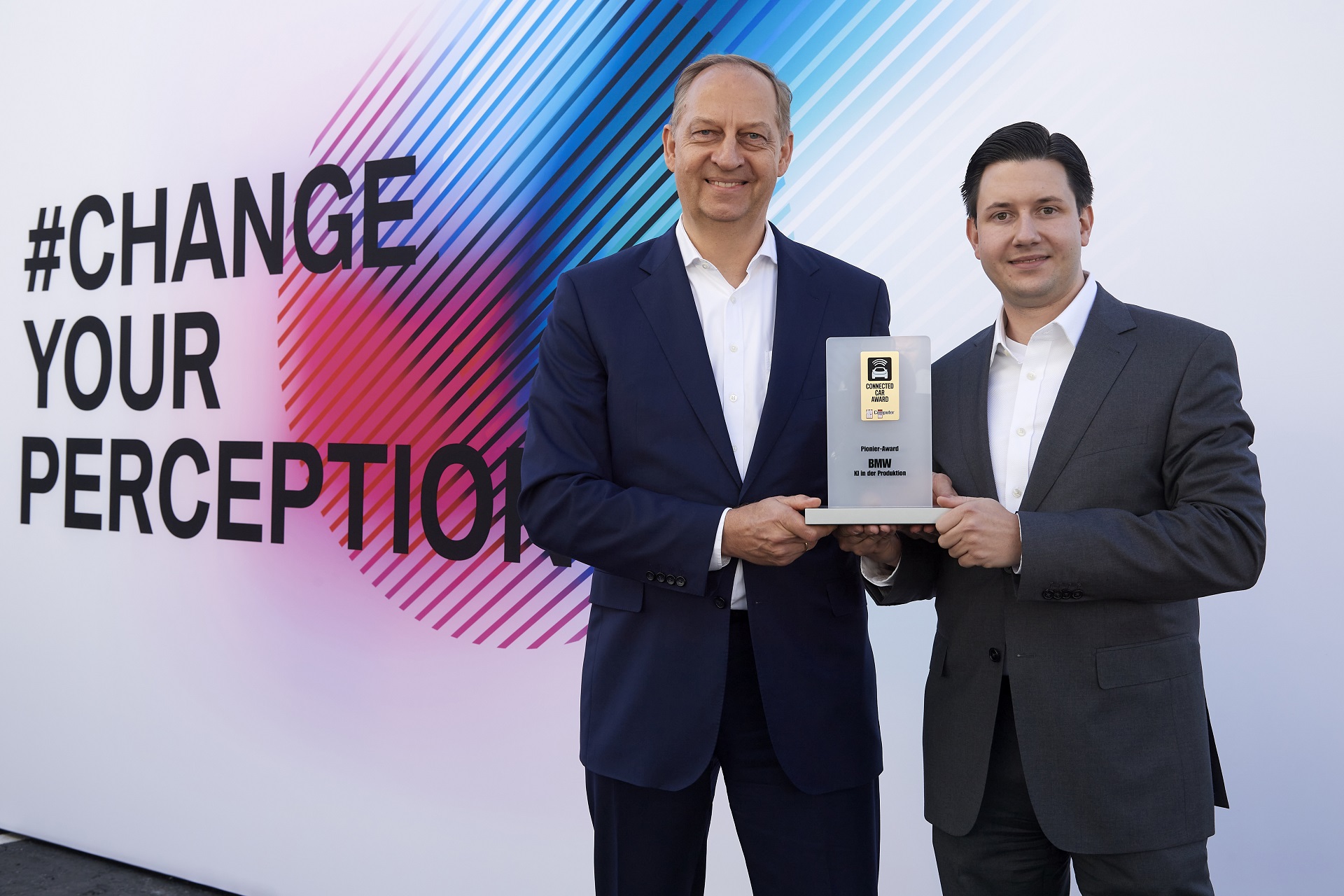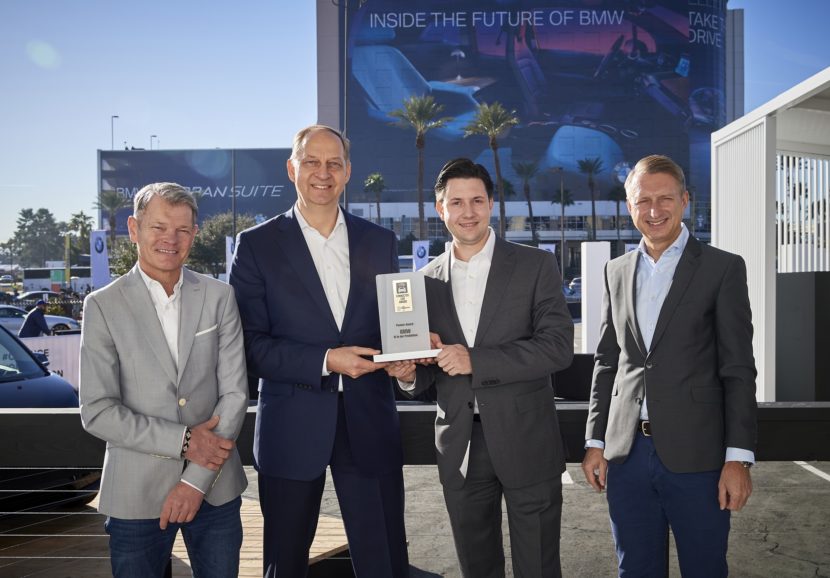BMW has been working on what they call ‘Industry 4.0‘ standards for quite some time now. They introduced robots to help out in their plants around the world, they developed exoskeletons for workers to support them and introduced amazing 3D cameras to scan for imperfections. All this hard work has been recognized today by the magazines Auto Bild and Computer Bild, that offered the Bavarian car maker the ‘Connected Car Award’ during a short ceremony at CES 2020 in Las Vegas.
BMW was voted winner of the Pioneer category by a jury of experts comprised of editors from both publications, honoring particularly innovative solutions, such as the use of artificial intelligence in production. “We are delighted to receive this very special award. It confirms that we are on the right track, introducing effective applications that create added value for the production system and provide maximum support for our employees,” said Dirk Hilgenberg, Senior Vice President Production System, Technical Planning, Tool Shop, Plant Construction at the BMW Group.
There are a number of impressive bits of tech that are being used at BMW plants around the world today. The BMW Group’s Intranet of Things platform in particular ensures a smooth integration of new AI applications into production IT. Workers can choose the most suitable tools from a digital toolbox, combine them into their own solutions and install them via plug and play. Another example is the final inspection area at the Dingolfing plant.
This is where vehicle order data is compared to a live image of the model designation of the newly produced car. If live image and order data don’t match, if e.g. a designation such as “xDrive” is missing, the workers carrying out the final inspection receive a notification. Last month, BMW publicly shared parts of its innovative digital image tagging software, which has been successfully applied in various AI applications. In turn, software developers all around the world support the development of AI software, allowing the automaker to focus primarily on the advancement of specific AI applications in production and logistics.






































































